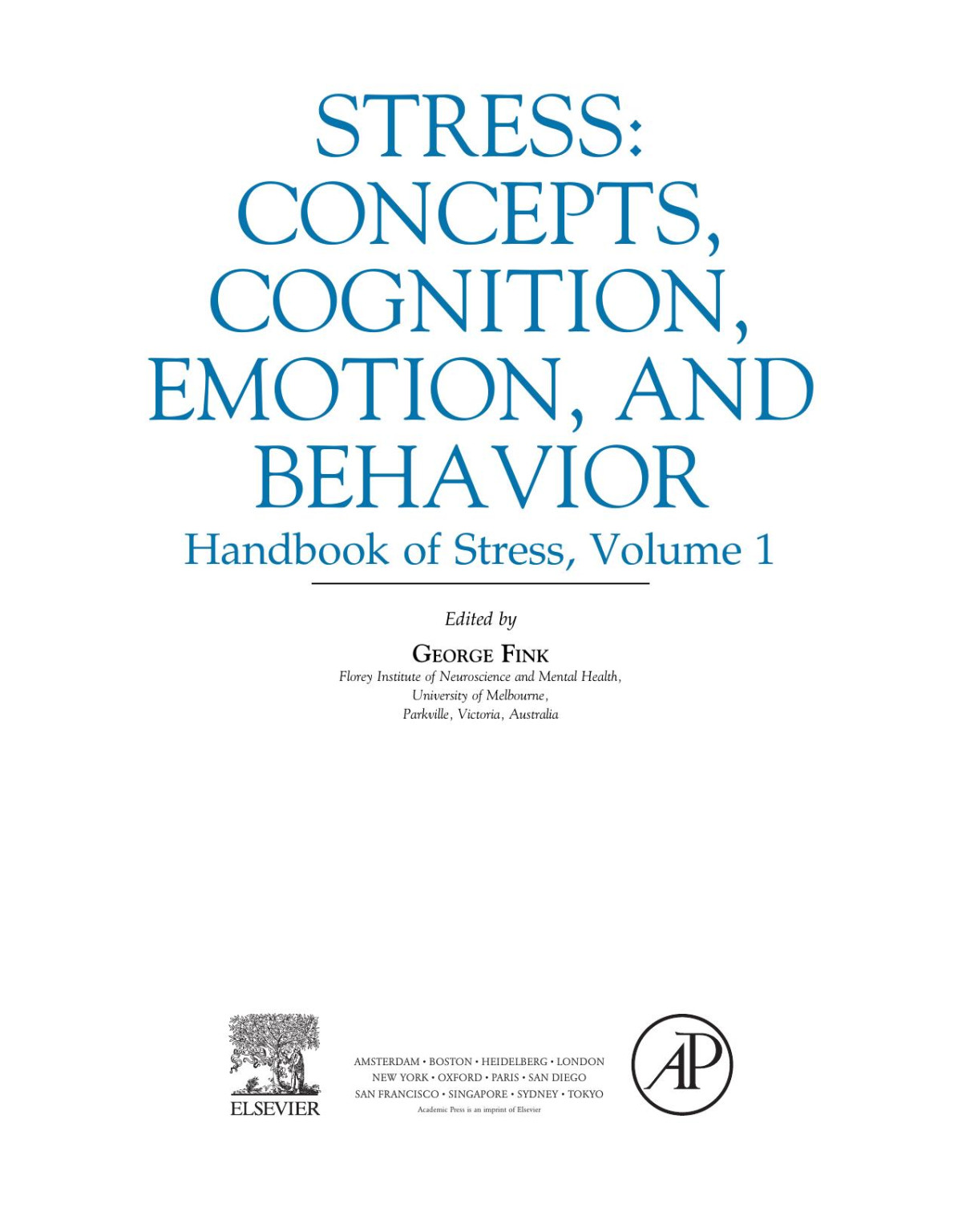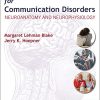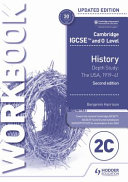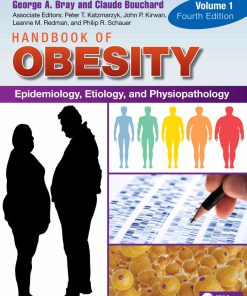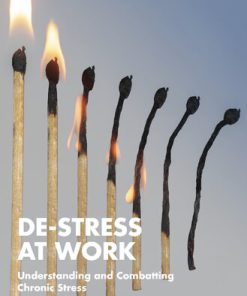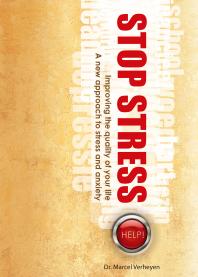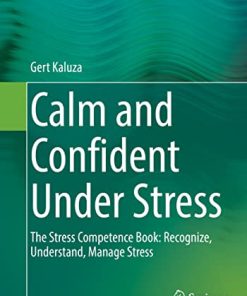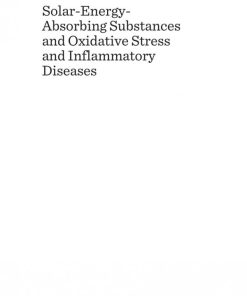Stress Concepts Cognition Emotion and Behavior Handbook in Stress Series Volume 1 1st edition by Fink, George 0128009519 9780128009512
$50.00 Original price was: $50.00.$25.00Current price is: $25.00.
Stress Concepts Cognition Emotion and Behavior Handbook in Stress Series Volume 1 1st edition by Fink, George – Ebook PDF Instant Download/Delivery: 0128009519, 9780128009512
Full download Stress Concepts Cognition Emotion and Behavior Handbook in Stress Series Volume 1 1st edition after payment
Product details:
ISBN 10: 0128009519
ISBN 13: 9780128009512
Author: Fink, George
The Handbook is targeted at scientific and clinical researchers in biomedicine, psychology and some aspects of the social sciences including stress and its management in the workplace. The audience would comprise appropriate faculty and graduate and undergraduate students interested in stress and its consequences. The format will allow access to specific self-contained stress subsections without the need to purchase the whole 9-volume Stress handbook series. This will make the publication much more affordable than the previously published 4-volume Encyclopedia of Stress (Elsevier 2007) in which stress subsections were arranged alphabetically and therefore required purchase of the whole work. This feature will be of special significance for individual scientists/clinicians as well as laboratories. In this first volume of the series, the primary focus will be on general stress concepts as well as the areas of cognition, emotion, and behavior.
- Chapters offer impressive scope with topics addressing the interactions between stress, cognition, emotion and behaviour
- Articles carefully selected by eminent stress researchers and prepared by contributors representing outstanding scholarship in the field, chapters fully vetted for expert knowledge
- Richly illustrated with explanatory figures and tables
- Each chapter will have boxed “how do we know?” call out sections that serve to explain key concepts and methods
- Priced affordably, readers will have access to Volume 1 without the need to purchase the whole Handbook. This represents a significant advantage over the previously published 4-volume Encyclopedia of Stress in which stress subsections were in alphabetical order and therefore required purchase of the whole work
Stress Concepts Cognition Emotion and Behavior Handbook in Stress Series Volume 1 1st Table of contents:
1: General Concepts
Chapter 1: Stress, Definitions, Mechanisms, and Effects Outlined: Lessons from Anxiety
Abstract
Acknowledgments
Introduction
Stress Definitions
Fear Versus Anxiety….What Are the Differences?
Biological Response to Stress
Conclusions and Relevance for Stress and Anxiety Management
Glossary
Chapter 2: The Alarm Phase and the General Adaptation Syndrome: Two Aspects of Selye’s Inconsistent Legacy
Abstract
Introduction
Criticisms of the GAS
Bridging the Chasm Between Cannon and Selye
Learning About Stress
Evidence for Stressor-Specific Neuroendocrine Signatures
Conclusions
Chapter 3: Corticosteroid Receptor Balance Hypothesis: Implications for Stress-Adaptation
Abstract
Acknowledgments
Introduction
MR, GR, and Cellular Homeostasis
Processing of Stressful Information
Testing the Balance Hypothesis
Concluding Remarks
Chapter 4: The Fight-or-Flight Response: A Cornerstone of Stress Research
Abstract
Introduction
The Concept of Homeostasis
The Fight-or-Flight Response
Fight-or-Flight Taken to an Extreme
Theories of Emotions
The Legacy of Walter B. Cannon
Chapter 5: Central Role of the Brain in Stress and Adaptation: Allostasis, Biological Embedding, and Cumulative Change
Abstract
Acknowledgments
Introduction
Homeostasis, Allostasis and Allostatic Load and Overload
Plasticity and Vulnerability of the Brain
Translation to the Human Brain
Sex Differences in Stress Responsiveness and What This Means for the Rest of the Brain
Lessons from Gene Expression
Lessons from Epigenetic Influences
The Life Course and the Epigenetics of Individual Differences
Interventions
Chapter 6: Behavior: Overview
Abstract
Behavioral Responses to Stress
Interactions Between Behavioral and Physiological Components of the Stress Response
Behavioral Sources of Stress
Chapter 7: Conservation of Resources Theory Applied to Major Stress
Abstract
The Interdependence of Resources
The Origins of Traumatic Stress
Principles of COR Theory
Corollaries of COR Theory
Practical Implications
Conclusion
Chapter 8: Control and Stress
Abstract
Introduction
Behavioral Control and Physiological Stress Responses
Perceived Control
Cognitive Control and Coping
Self-Control
Control and Well-Being
Conclusions
Chapter 9: Effort-Reward Imbalance Model
Abstract
Background
Theory and Measurement
Selected Empirical Evidence
Implications for Prevention and Future Research Directions
Chapter 10: Environmental Factors
Abstract
Historical Background
The Impact of Environmental Factors on Stress
Differential Exposure and Vulnerability to Environmental Stressors
Chapter 11: Evolutionary Origins and Functions of the Stress Response System
Abstract
Utility of the Stress Response System
Phylogeny of the Stress Response
How Does the SRS Help?
Adaptive Regulation of Stress Responsiveness
Mismatch Between Ancestral and Modern Environments
Glossary
Chapter 12: Life Events Scale
Abstract
The Importance of Assessing Life Events and Stress Exposure
Major Life Events
Stress Appraisal
Chronic Stressors
Daily Hassles
Future Directions in Research Involving Life Events Scales
Chapter 13: Psychological Stressors: Overview
Abstract
Historical and General Considerations
Conceptual Developments
Methodological Considerations and Recent Developments
Chapter 14: Remodeling of Neural Networks by Stress
Abstract
Early Ideas About the Stress Response
Activation of Brain Systems
Structural Plasticity of the Mature Brain
Remodeling of Brain Cells by Stress
Stress Suppresses Neurogenesis in the Adult Dentate Gyrus
Plasticity of Glial Cells
Plastic Changes of Brain Cells are Reflected by Alterations in Gene Expression
Structural Changes are Reversible
Conclusions
Chapter 15: Epigenetics, Stress, and Their Potential Impact on Brain Network Function
Abstract
Acknowledgments
Introduction
The Epigenetics Revolution in Biology
The HPA Axis and Measures of the Central Nervous System
Epigenetic Mediation of Stress-Related Processes
Pathways I: Stress, Epigenetics and Synaptic Plasticity
Pathways II: Toward Brain Network Function
2: Cognition, Emotion, and Behavior
Chapter 16: Cognition and Stress
Abstract
Environmental, Biological, and Cognitive Components of Stress
Cognition and Stress: Cognitive Origins of Stress
Stress and Cognition: Cognitive Consequences of Stress
Chapter 17: Stress, Memory, and Memory Impairment
Abstract
Introduction
Memory
Stress and Memory Encoding
Stress and Memory Consolidation
Stress and Memory Retrieval
Reconsolidation
Conclusion
Chapter 18: Effects of Stress on Learning and Memory
Abstract
Effects of Stress on Learning and Memory in Humans
Effects of Stress on Learning and Memory in Animals
Glossary
Chapter 19: Trauma and Memory
Abstract
Characteristics of Traumatic Memory
Sensory-Perceptual Representation
Autobiographic Contextual Memory
Neurobiological Basis of Memory and Trauma
Chapter 20: Stress, Trauma, and Memory in PTSD
Abstract
Introduction
Overview of the Neurobiology of Stress
Impacts of Extreme Stress on Brain Circuitry
Implications for Memory in PTSD
Enhanced Recall of Trauma-Related Information
Dissociation
Impaired New Learning
Neuropsychological Correlates of PTSD
Psychological Theories of PTSD
Centrality of Memory to Psychological Theories of PTSD
Psychological Treatment of PTSD
Summary
Chapter 21: Adolescent Cognitive Control: Brain Network Dynamics
Abstract
Introduction
Early Research Implicating the Frontal Lobes
Brain Networks of Cognitive Control
Large-Scale Network Dynamics
Future Directions and Concluding Remarks
Chapter 22: The Behavioral, Cognitive, and Neural Correlates of Deficient Biological Reactions to Acute Psychological Stress
Abstract
Introduction
Deficient Stress Reactivity
Motivational Dysfunction
Cognitive Ability, Tests of Respiratory Function, and Deficient Stress Reactivity
Deficient Stress Reactions and Neural Hypoactivation
Deficient Stress Reactivity and Other Behavioral Manifestations of Poor Motivational Regulation
The Origins of Deficient Stress Reactivity
The Reactivity Hypothesis Revisited: Inverted-U or Orthogonal Processes
Biological Disengagement: A Wider Phenomenon
Concluding Remarks and Future Directions
Chapter 23: When the Work Is Not Enough: The Sinister Stress of Boredom
Abstract
Chapter 24: Anxiety Disorders
Abstract
Introduction
Panic Disorder
Agoraphobia
Social Anxiety Disorder (Social Phobia)
Specific Phobia
Generalized Anxiety Disorder
Adult Separation Anxiety Disorder
Treatment
Pharmacotherapy
Cognitive-Behavioral Therapy
Conclusion
Chapter 25: The Post-Traumatic Syndromes
Abstract
The Evolution of the Construct
Contentious Issues
Who Gets PTSD?
Treatment
Conclusions
Chapter 26: Distress
Abstract
Introduction
Assessment of Distress
Influences on Distress
Individual Differences in Vulnerability to Distress
Psychological Concomitants of Distress
Glossary
Chapter 27: Depersonalization: Systematic Assessment
Abstract
Definition and Characteristics
Etiology
Assessment with the Structured Clinical Interview for DSM-IV Dissociative Disorders—Revised
Case Study
Conclusions
Glossary
Chapter 28: Emotional Inhibition
Abstract
Emotion and Inhibition
Domains of Emotional Inhibition
Pathways from Emotional Inhibition to Health Disorders and Illness Behaviors
Rituals and Therapeutic Interventions
Glossary
Chapter 29: Chronic Stress, Regulation of Emotion, and Functional Activity of the Brain
Abstract
Stress
Emotion Regulation
Functional Activity and Emotion Regulation
Chronic Stress and Emotion Regulation
Emotion Regulation, PTSD, and Brain Functioning
General Conclusion
Chapter 30: Neuroimaging and Emotion
Abstract
Emotion
Definition of Emotion
Emotion Perception and Attention
Decision-Making
Memory and Learning
Interoception and Subjective Feeling States
Social Interaction
Emotion Regulation
Emotion Dysregulation
Glossary
Chapter 31: Rumination, Stress, and Emotion
Abstract
Chapter 32: Psychology of Suicide
Abstract
Introduction
The Relationship Between Stress and Suicide
The Situation
Stress-Diathesis Models of Suicide
Physiological Correlates of Stress and Suicide
Preventing Suicide
Chapter 33: Sociology of Suicide
Abstract
Introduction
Durkheim’s Theory
Fatalistic Suicide
Henry and Short’s Theory
Naroll’s Theory
Culture Conflict
Measuring Regional Stress
Multivariate Studies of Regional Suicide Rates
Nonfatal Suicide Behavior
Chapter 34: Cortisol Awakening Response
Abstract
Introduction
The Biological Origins of the CAR
Measurement of the CAR
Factors Affecting the CAR
Significance for Stress and Health Research
Conclusions
Chapter 35: Anger
Abstract
Anger and Stress
The Experience and Expression of Anger
Anger Physiology
Anger Dyscontrol: Physical and Psychological Health Problems
Anger Treatment
Chapter 36: Aggressive Behavior and Social Stress
Abstract
Introduction
The Sociobiology of Feral Rodents
Experimental Laboratory Models of Aggression
Aggressive Behavior: Different Forms in Both Animals and Humans
Aggressive Behavior and Stress
Acute Social Stress Models
Chronic Social Stress Models
Individual Differences in Aggressiveness and Coping with Social Stress
Concluding Remarks
Chapter 37: The Amygdala and Fear
Abstract
Amygdala Anatomy
The Amygdala and Fear Conditioning in Animals
The Amygdala and Fear in Humans: Evidence from Lesion Studies
The Amygdala and Fear in Humans: Evidence from Neuroimaging Studies
The Amygdala and Psychopathology
Chapter 38: Aging and Psychological Stress
Abstract
Introduction
Regulation of Stress-Response (Allostasis) and Age-Related Disease (Allostatic Load; AL)
Primary and Secondary Markers of AL and Stress Response
Tertiary Markers of AL and Stress-Response and Central Role of the Brain
Chapter 39: Childbirth and Stress
Abstract
Childbirth and Stress
Theoretical Models of Childbirth and Trauma
Impact of Traumatic Childbirth
Costs of Traumatic Childbirth and Clinical Implications
Conclusions
Chapter 40: Stress Generation
Abstract
Introduction
Definitional and Methodological Considerations
Evidence for Stress Generation
Predictors of Stress Generation
Moderators of Stress Generation
Summary and Directions for Future Research
Chapter 41: Caregivers and Stress
Abstract
Stress Process Model as a Guide
Health Effects of Care-Related Stress
Intervention for Caregivers
Institutional Care
Summary
Chapter 42: Fatigue and Stress
Abstract
Clinical Diagnostic Perspective
Fatigue as an Adaptive Response to Stress
Psychophysiological and Biological Perspective
External Demands in the Work Environment
Biobehavioral and Psychosomatic Perspective
Conclusions
Glossary
Chapter 43: Burnout
Abstract
Definition and Assessment
Psychosocial Factors
A Mediation Model of Burnout
Implications for Interventions
Chapter 44: Coping Process
Abstract
Acknowledgments
Stress and Coping
Ways of Coping
Tripartite Model of Coping
Coping Effectiveness
A Contextual Model of Coping
Summary
Chapter 45: Combat Stress
Abstract
The Unique Context of Combat Stress
Combat Stress Reactions and Clinical Intervention
Reintegration: Homecoming after Combat
Conclusions
Chapter 46: Survivor Guilt
Abstract
Introduction
History of the Concept of Survivor Guilt
Different Types of Survivor Guilt
Posttraumatic Manifestations of Survivor Guilt
Purpose of Survivor Guilt
Treatment of Survivor Guilt
Glossary
Chapter 47: Refugees: Stress in Trauma
Abstract
Introduction
Refugee Trauma
Postmigration
Psychiatric Disorders Among Refugees
The Course of Trauma Syndrome Among Refugees
Diabetes, Hypertension, and Cardiovascular Disease
Evaluation of the Refugee Patient
Treatment
Medicine
Future Research Approaches
Chapter 48: Stress in Emergency Personnel
Abstract
Introduction
Critical Incidents and Emergency Personnel
Critical Incident Stress
Crisis Intervention
Principles of Crisis Intervention
Goals of Crisis Intervention
Critical Incident Stress Management
Strategic CISM Services
Strategic CISM Planning Formula
CISM Techniques
The Status of CISM
Positive Effects of CISM
The Future of CISM
Chapter 49: Stress in Policing
Abstract
Scope of the Stress Problem in Policing
Sources of Stress in Policing
Impact of Stress on Police Officers
Conclusion
Chapter 50: Peacekeeping
Abstract
Types of Peacekeeping Missions
Unique Stressors of Peacekeeping
Psychological and Behavioral Impact of Peacekeeping
Conclusions and Recommendations
Chapter 51: Optimism, Pessimism, and Stress
Abstract
Dispositional Optimism
Optimism and Stress
Goal Engagement
Coping
Self-Regulation
Mental Well-being
Physical Well-being
How to Improve Optimism
Conclusion
Chapter 52: Chronic Pain and Perceived Stress
Abstract
Acknowledgments
Introduction
The Experience of Pain
Theories of Pain and the Relationship to Stress
Pain-Related Neurobiological and Biological Findings
Future Directions
Conclusion
Chapter 53: Industrialized Societies
Abstract
Process of Industrialization and Epidemiological Transition
Stressful Social Environments and Health
Concluding Remarks
Chapter 54: Indigenous Societies
Abstract
Introduction
Stress in Unacculturated Indigenous Societies
Stress and Acculturation in Indigenous Societies
Stress and Migration
Conclusion
Chapter 55: Diet and Stress: Interactions with Emotions and Behavior
Abstract
Introduction
Animal Research into Stress and Eating Behavior
Human Research into Stress and Food Intake
Mechanisms Relating Stress to Eating
Summary
Chapter 56: Stretched Thin: Stress, In-Role, and Extra-Role Behavior of Educators
Abstract
Introduction
Extra-Role Behavior
Extra-Role Behavior in Educational Settings
Managing Extra-Role Behavior and Stress
Conclusion
Chapter 57: Stress and Coping in the Menopause
Abstract
Psychological Stress
Stress and the Menopause
Coping and Menopause
Implications for Menopause Management
Chapter 58: Psychosomatic Medicine
Abstract
Introduction
History and Current Developments
Conclusions
Chapter 59: Religion, Stress, and Superheroes
Abstract
Religion as a Concept
Religion as Cure for Stress
Religion as a Cause of Stress
Religion as a Correlate of Stress
Glossary
Chapter 60: Dental Stress
Abstract
Introduction
Psychological Couplings of the Oral Region
Dental Fear, Phobic Reactions, and Panic Disorder
Psychosomatic Manifestations in Dentistry
General Principles of Prevention
Management of Dental Fear
Management of Psychosomatic Manifestations
People also search for Stress Concepts Cognition Emotion and Behavior Handbook in Stress Series Volume 1 1st:
6 emotions psychology
6 emotions of stress
4 stressors
physical cognitive emotional and behavioral reactions to stress
Tags:
Fink,George,Stress,Concepts,Emotion
You may also like…
Uncategorized
Stress Cognition and Health Real World Examples and Practical Applications 2nd Edition Tony Cassidy
Education Studies & Teaching - Studying & Test Preparation
Medicine - Popular scientific literature
Handbook of Obesity Volume 1 Epidemiology Etiology and Physiopathology 4th Edition George A Bray
Uncategorized
De Stress at Work Understanding and Combatting Chronic Stress 1st Edition Simon L Dolan
Uncategorized
Business & Economics - Human Resources
Uncategorized

